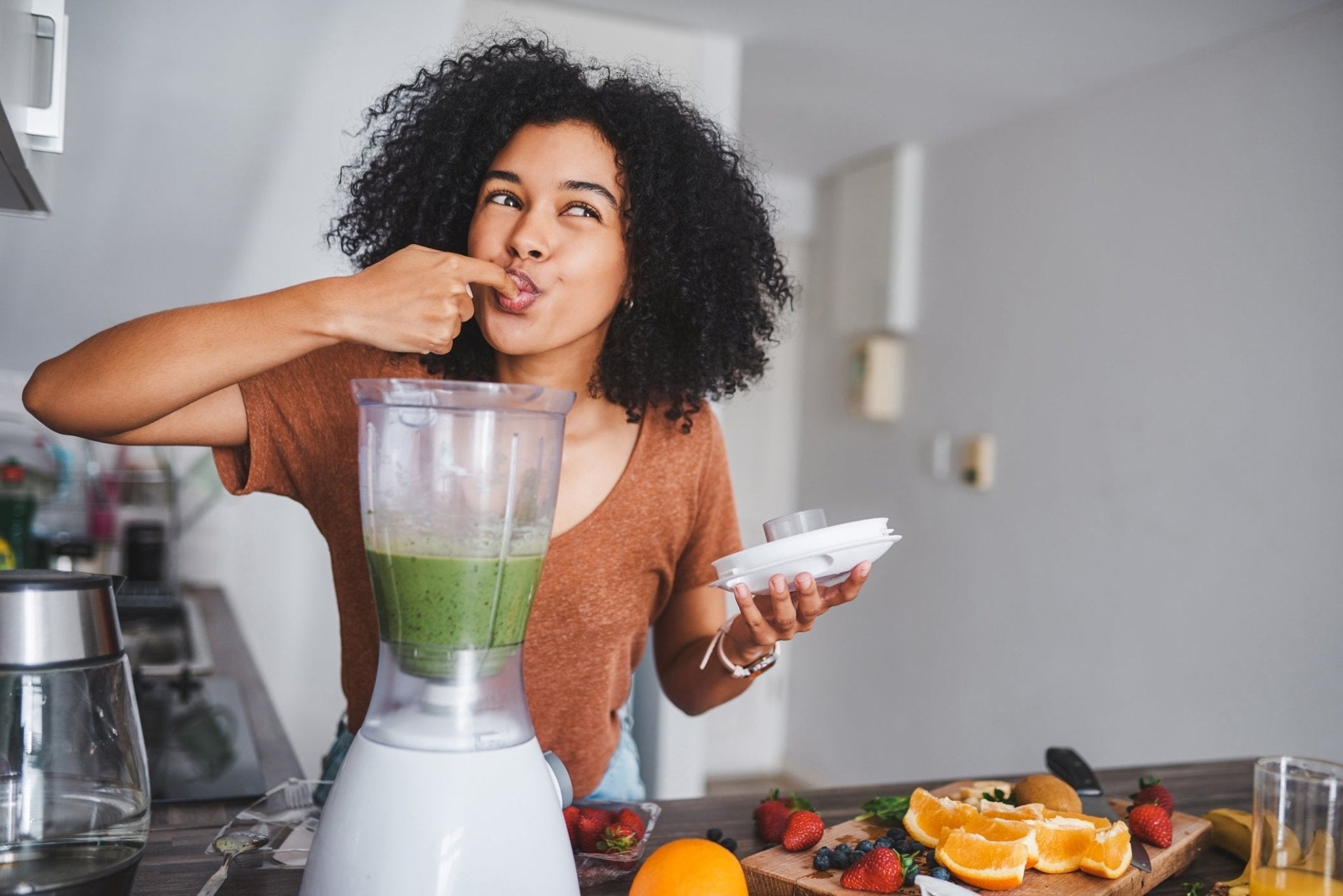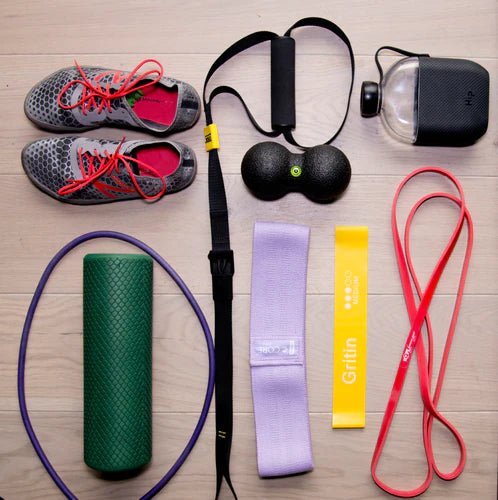From health worries to the stress of home schooling, worry for family and friends to financial difficulties, the COVID-19 pandemic took a massive toll on our mental wellbeing. And for many, it was more serious than that – according to the World Health Organisation, who have conducted a study of the mental health of 130 countries, the pandemic highlighted the devastating effect that COVID-19 had on our mental health whilst underscoring the urgent need for medical funding.
In order to help raise happiness levels, we've decided to do a series of articles that will delve into various different 'mood-boosting' areas, starting here with the benefits of eating nutritious food.
Food for thought
In recent years, we've become far more aware of the link between the state of our gut and our minds. Scientists have now proven that our gut is responsible for producing a large proportion of our neurotransmitters, the chemicals that transmit information throughout the body and brain. In fact, it's been shown that as much as 90 percent of serotonin (our so-called ‘happy’ hormone) is made in our gut, so it goes without saying that if the state of our stomach is out of whack, then our brains could well be, too.
Not only that, but scientists have shown that it’s not just our bodies that require fuel – brains get hungry, too. Doctors believe that they use up about a quarter of our daily energy supply, consuming roughly 300 calories in the day and the same again at night. It is therefore vitally important, says dietician Rachel Kelly, that we support the link between the gut and the brain (the gut/brain axis) by fueling ourselves with optimum foods which may well help keep anxiety, depression and other mental health disorders at bay.
But it’s no good throwing a packet of probiotics into your supermarket trolley and hoping for the best. According to Rachel, when it comes to the gut/brain axis, there should be a multi-pronged approach. She suggests the following…
Eat serotonin-boosting foods
We want to make sure that we have adequate levels of serotonin in our bodies, explains Rachel: “This chemical messenger contributes to happiness and wellbeing, but in order for it to be produced, it requires the amino acid tryptophan to be present, which you can get through your diet by eating tryptophan-high food.”
Rachel therefore suggests eating tofu, egg yoke, salmon, turkey, and plenty of nuts and seeds. She adds, however, that it's important to know that tryptophan is enhanced when eaten with a carbohydrate (which is why, perhaps, she thinks we have sugar cravings). She therefore suggests pairing the above with, say, brown rice, quinoa, lentils or fruit. “You could have eggs on toast, for example, or a tofu stir-fry, or maybe a turkey and cheese brown bread sandwich,” she says.
Focus on your gut health
Our gut microbiome has been the health buzzword of the last few years, but for good reason – this flora of different bacteria lining our intestines has been proven to be hugely beneficial for our health if looked after correctly. “We want to support a vast microbiome as poor microbiome variety has been linked to stress, depression and anxiety,” says Rachel. “The gut brain axis is the interaction between the microbiome in your gut and the cognitive and emotional centres in the brain.”
What's key, she explains, is that we all have a diverse range of good bacteria in our stomachs, which involves eating a diverse range of plant foods. In particular, she also suggests eating fermented foods or live cultures, which add beneficial bacteria and enzymes into your overall intestinal flora. She therefore suggests adding miso, kimchee, kombucha, sauerkraut, and yoghurt into your diet where you can. When it comes to yoghurt, however, look out for the words ‘active’ or ‘live’ on the label, or mentions specific good bacteria.
She explains you also want to feed the microbiome with prebiotics (this is the food that the bacteria feed on), which involves eating a lot of fibrous foods where you can. Some suggestions are beans, leeks, onions, artichokes and whole wheat bread or pasta.
As for probiotics, Rachel suggests that unless you have a diagnosed digestive/health issue, then it’s best to opt for naturally occurring probiotics in fermented foods.
Balance blood sugar levels
We all know what it’s like to feel ‘hangry’ when we haven’t eaten, and how this can make us feel low, jittery or anxious. What we don’t want, explains Rachel, is for our body to go into hypoglycemic mode, where our blood sugar is too low. She therefore suggests eating a healthy portion of whole grain carbs at most meals in order to maintain a steady flow of glucose. This, she says, “Can be in the form of fruit, quinoa, buckwheat, chickpeas, or sweet potatoes, and it’s important to eat wholegrain bread and pasta where you can.”
If you're suffering from low mood, Rachel suggests potentially steering clear of low-carb diets, which have been particularly popular in recent years. “Low mood can be associated with nutrient deficiencies such as B vitamins and selenium, which are found in foods such as bread, lentils, cereal, milk and bananas, so a low carb diet may exacerbate these further,” she says.
Ensure nutrient deficiency isn’t present
It may sound boring and you're probably sick to death of hearing the word ‘balance’ from health professionals, but if you don’t have a diet that contains carbohydrates, proteins and healthy fats, then you may be lacking in nutrients that are associated with mood. For example, if you're either deficient in iron or lacking in B vitamins, you may feel low and irritable.
It’s incredibly hard to prescribe one eating plan for everybody as our bodies and goals are all so different, but as a general rule, (and especially if you're susceptible to low mood), Rachel suggests including a wholegrain carbohydrate at breakfast, at lunch and as a snack, but keeping it optional for dinner. She also suggests eating protein at every meal and including a healthy fat, too.
Other tips for supporting the gut brain pathway
Take an omega 3 supplement
There's evidence around the benefit of omega-3 fatty acid supplementation for people with diagnosed clinical depression, says Rachel.
Note: these should not to replace any medication.
Hydrate hydrate hydrate for a happy brain
Your brain can’t function unless you're well hydrated, so you may feel fatigued if you don’t hydrate throughout the day. Aim to drink 6 glasses of water a day.
Tackle emotional eating
Rachel also highlights the importance of managing our emotions around eating: “It’s important to try to take away any feelings of guilt, so we feel happy and healthy in our minds instead of feeling shameful. If you do eat something indulgent, then take a breath, acknowledge that you have enjoyed that food, put it behind you, and then move onto the next healthy meal.”
Buy this feel-good cookbook
Rachel Kelly is the author of The Happy Kitchen and The Happiness Diet. Having suffered from anxiety and depression for many years, it wasn’t until she researched and improved her diet that she realised how much better she felt. Created with nutritional therapist Alice Mackintosh, they consist of gut and brain-boosting recipes for breakfast, lunch and dinner.
Here’s a sample recipe from The Happy Kitchen:
The Tropical C Smoothie
Rachel says, "I have this for breakfast if I wake feeling whacked. Alice designed it so that I could get lots of energy-boosting goodness in one go. These fruits are rich in vitamin C and fibre, while the walnuts and avocado deliver protein and healthy fats to balance everything out. The oats and nuts add substance and slow down the absorption of sugar from the fruit, and the cinnamon may also reduce sugar cravings.”
Serves 2
Ingredients:
½ papaya or 1 whole mango
¼ avocado
1 tbsp oats
6 walnuts
250 ml almond, coconut or oat milk
Cinnamon to taste
Method:
Peel the papaya or mango and remove its seed or stone.
Chop into medium-sized chunks and pop into a blender with all other ingredients. Blend until smooth
If you enjoyed this article then you'll love reading about what happens to your microbiome when you travel here
Notes on mental health
Please note that these tips are not meant to be a replacement for speaking with a licensed therapist and/or a psychiatrist. Please do not be afraid to seek help if you feel that you or someone else is struggling and could benefit from it. Contact your local GP, family doctor or insurance company and/or your local government/ council to seek other government-funded resources for mental health.
Mental Health helplines
US – SAMHSA (Substances Abuse and Mental Health Services Administration) Call 1-800-662-HELP (4357)
UK – MIND – Call 0300 123 3393 or text SHOUT to 85258 which is a crisis textile for support in a crisis giveusashout.org/get-help/



